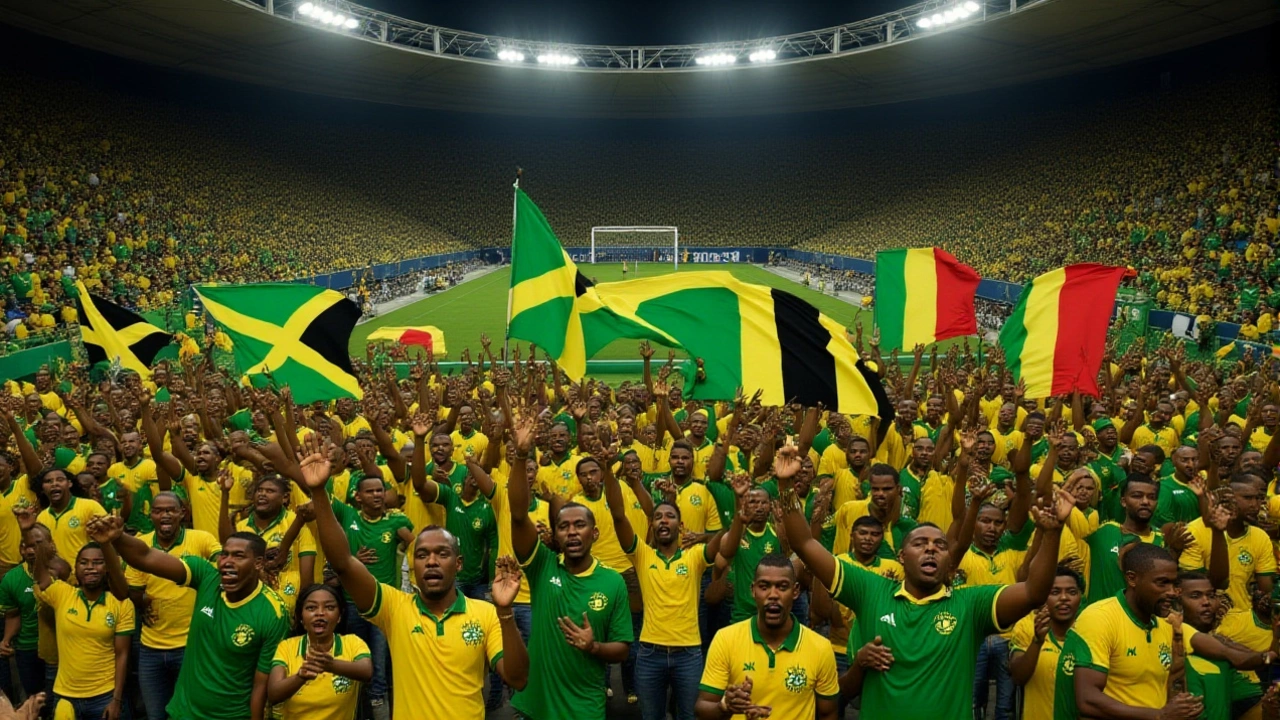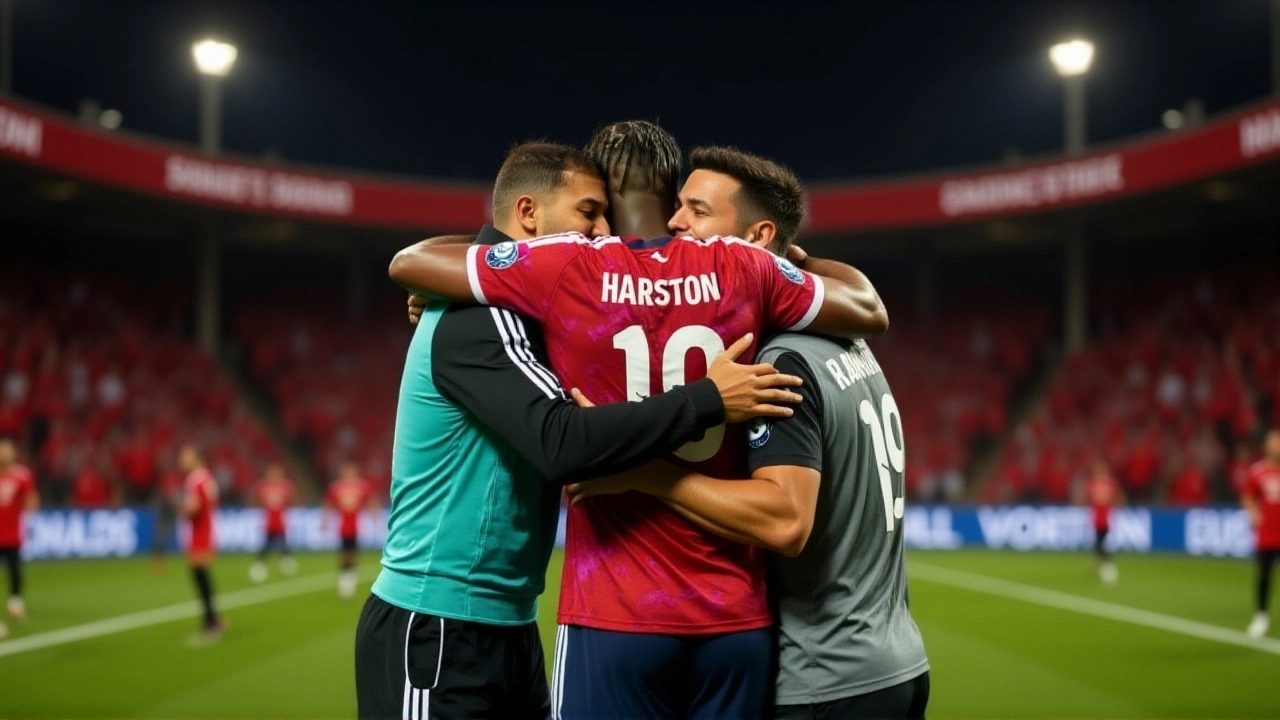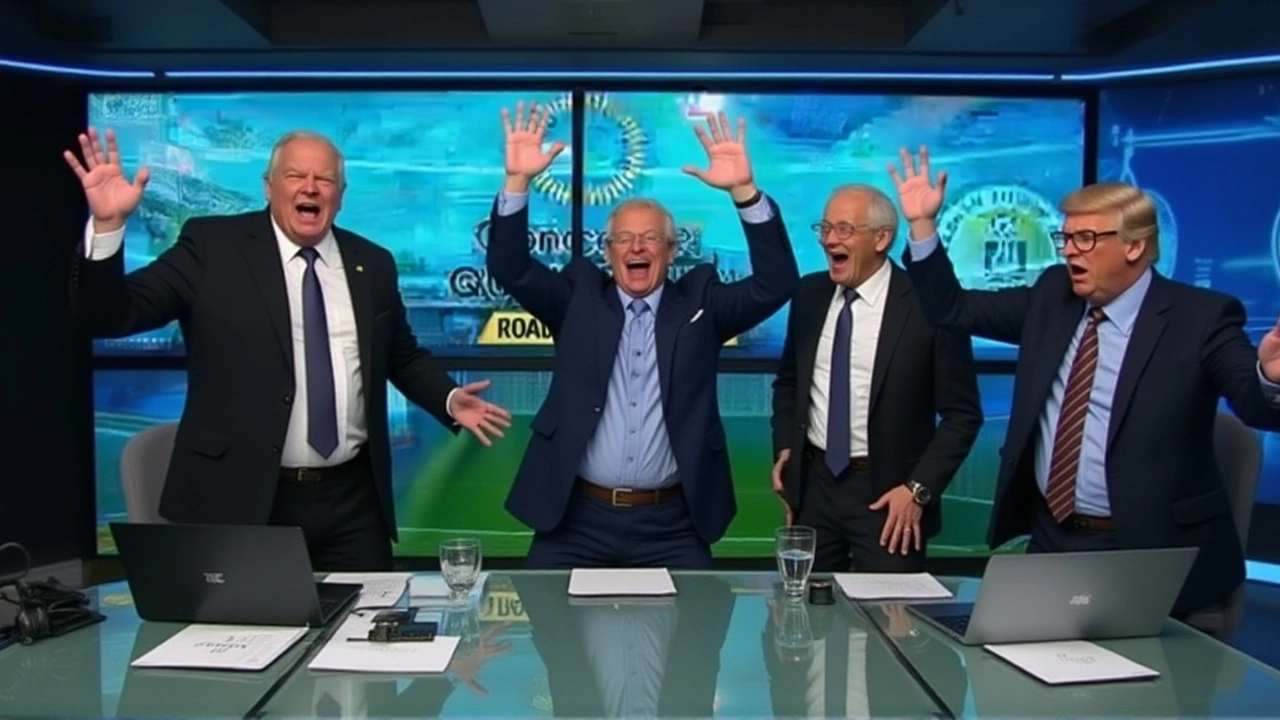On Tuesday, November 18, 2025, the world watched in stunned silence as Curaçao, a Caribbean island with just 156,000 people, punched its ticket to the 2026 FIFA World Cup — becoming the smallest nation in tournament history to do so. The moment came in the 94th minute of a tense 0-0 draw against Jamaica at the National Stadium in Kingston, when referee Chris Penso reversed a penalty decision after VAR review, preserving Curaçao’s lead in the group standings. One goal wasn’t needed. One save, one stoppage-time reprieve, was enough.
A Nation That Shouldn’t Be Here
Curaçao, an autonomous country within the Kingdom of the Netherlands, has never been considered a football powerhouse. Its population is smaller than many U.S. college towns. Its national stadium holds 15,000. Its players are mostly Dutch-born descendants of Curaçaoan families, scouted from youth academies in Rotterdam and Amsterdam. Yet here they were — top of CONCACAF Group B with 14 points, one ahead of Jamaica, after a match that felt like a thriller written by someone who’d never seen the island.What made it even more surreal? Their head coach, Dick Advocaat, the 77-year-old Dutch legend who once managed the Netherlands national team, wasn’t even there. He’d flown back to Europe over the weekend for undisclosed family reasons. Assistant Patrick Kluivert, the former Barcelona and Netherlands striker, took charge — and kept his cool when the pressure was unbearable. Jamaica, coached by Steven McClaren, the former England boss, hit the woodwork three times in the second half. Shamar Nicholson’s shot clanged off the post. Cory Burke’s volley rattled the crossbar. The stadium roared. The crowd held its breath.
Then came the penalty. Handball. Penso pointed. Jamaica’s players sprinted toward the spot. Curaçao’s defenders dropped to their knees. But then — silence. The VAR monitor flashed. Penso walked over. He watched. He thought. And then, he reversed it. No penalty. No last-gasp equalizer. Just pure, unscripted chaos. Curaçao had done it. Smallest nation. Ever.
Haiti’s Miracle on the Other Side of the Island
While Curaçao celebrated in Kingston, another miracle was unfolding 65 kilometers away in Willemstad. At the Ergilio Hato Stadium, Haiti defeated Nicaragua 2-0 to clinch its second-ever World Cup berth — and its first since 1974. But there was no triumphal parade in Port-au-Prince. There couldn’t be.Since October 2023, Haiti has played every ‘home’ match in Curaçao. Why? Because gangs control 85% of the capital. Government institutions have collapsed. The Haitian Football Federation operates in exile, its offices now in a rented office above a pharmacy in Willemstad. Their coach, Sébastien Migne, a Frenchman hired in May 2024, has never set foot in Haiti. He’s never seen the stadiums, the streets, the children playing with balls made of tape and rags. He’s coached from afar, via Zoom, WhatsApp, and smuggled video clips.
And yet, they qualified. Two goals. Two clean sheets. A team playing in a foreign land, for a homeland they can’t return to. The final whistle in Willemstad was met with tears, not cheers. One player, 21-year-old midfielder Jean-Robert Saint-Vil, held up a jersey with the words: “Port-au-Prince, we’re coming home — in spirit.”

Panama Joins the Party — And the Road Ahead
With Curaçao and Haiti qualifying, Panama secured the third automatic CONCACAF spot. Their campaign was steady, not spectacular. But in a 48-team World Cup — the first ever expanded beyond 32 — even the smallest margins matter. The tournament, hosted jointly by the United States, Canada, and Mexico, kicks off June 11, 2026. For Curaçao, it’s a dream. For Haiti, it’s redemption.But the road doesn’t end here. Jamaica and Suriname now face a six-team intercontinental playoff in March 2026, competing against Bolivia, Democratic Republic of Congo, Iraq, and New Caledonia for the final two spots. The stakes? A place on football’s biggest stage.

Why This Changes Everything
Curaçao’s qualification isn’t just a feel-good story. It’s a seismic shift. For decades, World Cup qualification was dominated by nations with populations in the millions, with professional leagues, state-funded academies, and infrastructure. Curaçao has none of that. No professional league. No national training center. Just passion, diaspora networks, and a coaching staff who believed when no one else did.And Haiti? Their journey exposes the brutal reality of global inequality. A country with no functioning police force, no electricity in half its neighborhoods, still found a way to qualify — because football, at its best, refuses to be silenced by politics or poverty.
It’s not about size. It’s about heart. And for the first time in 96 years, the World Cup has a champion of the underdog.
Frequently Asked Questions
How did Curaçao qualify with such a small population?
Curaçao qualified by finishing first in CONCACAF Group B with 14 points, thanks to a dramatic VAR reversal in stoppage time against Jamaica. Their squad consists of Dutch-born players with Curaçaoan heritage, developed through grassroots networks and Dutch youth academies. With no professional league at home, they rely on diaspora talent and tactical discipline under coaches like Dick Advocaat and Patrick Kluivert.
Why is Haiti playing its home matches in Curaçao?
FIFA banned all matches in Haiti in October 2023 due to extreme gang violence that controls 85% of Port-au-Prince and has crippled public institutions. The Haitian Football Federation relocated its operations to Curaçao, where the Ergilio Hato Stadium has hosted all 10 of Haiti’s ‘home’ qualifiers since then. Coach Sébastien Migne has never visited Haiti since taking the job.
What makes Curaçao’s qualification historic?
Curaçao is the first nation under 200,000 people to qualify for the World Cup, shattering Iceland’s 2018 record of 350,000. With only 156,000 residents — just 0.0019% of the global population — their achievement redefines what’s possible in international football. They are also the first constituent country of the Kingdom of the Netherlands to qualify via CONCACAF.
Who will Curaçao face in the 2026 World Cup?
The full group stage draw for the 2026 World Cup hasn’t been released yet, but Curaçao will be placed in one of 12 groups of four teams. They’ll likely face stronger opponents from Europe or South America, given their low FIFA ranking. Their path to advancement will depend on defensive resilience and set-piece efficiency — traits that carried them through CONCACAF qualifying.
What’s next for Haiti’s national team?
Haiti’s next challenge is rebuilding morale and infrastructure. Their federation hopes to return to Port-au-Prince for friendly matches by late 2026, pending security improvements. They’ll need funding, coaching support, and youth development programs to sustain this momentum. Their World Cup appearance isn’t just a trophy — it’s a beacon for a nation desperate for hope.
How did VAR change the outcome of the Curaçao-Jamaica match?
Referee Chris Penso initially awarded Jamaica a penalty in the 94th minute for a handball by defender Cuco Martina. After reviewing footage on the sideline monitor, he determined the contact was minimal and that Martina’s arm was close to his body — not in an unnatural position. The decision was overturned, preserving Curaçao’s 0-0 draw and securing their top spot in Group B by one point.
